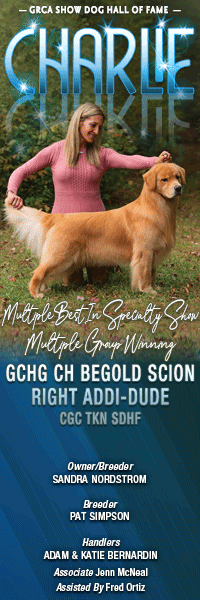Grant Launches Dog Aging Project Biobank at Cornell
 The Cornell Veterinary Biobank has received a $2.5 million federal grant to process, store and distribute biological samples for the Dog Aging Project, a massive national effort to study aging in dogs – and humans.
The Cornell Veterinary Biobank has received a $2.5 million federal grant to process, store and distribute biological samples for the Dog Aging Project, a massive national effort to study aging in dogs – and humans.
The National Institute on Aging (NIA), a division of the National Institutes of Health, selected Cornell for the four-year grant due in part to the biobank’s International Organization for Standardization (ISO) accreditation. The Cornell biobank is the first to meet ISO’s rigorous international standard for biobanks, and offers a complete range of services, including sample collection, acquisition, preparation, preservation, testing, analysis, storage and distribution.
The partnership will allow Cornell to bank samples from thousands of dogs from a nationwide cross section of households.
“The Dog Aging Project is the single largest longitudinal cohort of companion dogs,” said Dr. Marta Castelhano, director of the Cornell Veterinary Biobank and Cornell’s principal investigator on this grant. “We’re going to bank samples and data from these dogs and learn from them to inform [our knowledge of] aging in humans.”
Dogs and humans share many of the same age-related diseases, such as diabetes, arthritis and cancer, but it is easier to study these in dogs, as the average lifespan of a dog is much shorter. Also, companion dogs enrolled in the Dog Aging Project share the same environment, lifestyle, and sometimes the same food as their owners, making them better models for studying human disease than mice that live in controlled environments, for example.
“We’re studying these dogs where they are, sharing the environment with their owners,” Castelhano said.
The Dog Aging Project is currently funded by a five-year, $23 million NIA grant, and is led by Daniel Promislow, professor of pathology and biology at the University of Washington, the project’s host institution. Castelhano was first introduced to Promislow – and the Dog Aging Project – by the late Dr. Kristy Richards ’90, an oncologist at Weill Cornell Medicine and the Cornell College of Veterinary Medicine. Richards was a pioneer in translational research, in which she compared canine and human lymphoma for new diagnostics and treatments.
Last November, the project launched a media campaign to locate a minimum of 10,000 citizen scientists for a massive 10-year (and beyond) longitudinal study to understand dog aging and test potential therapies to extend life span. The campaign generated close to 1,000 news stories.
“Within the space of just a couple of weeks, we went from a couple thousand people nominating their dogs to over 80,000,” said Amber Keyser, communications strategist for the project.
All 80,000-plus enrolled participants will take a survey asking hundreds of questions about each dog’s environment, lifestyle, exercise, food, health history, water quality and more. Participants will also upload veterinary electronic medical records, which will be correlated with the survey information.
Additionally, scientists with the project will select a balanced and scientifically stratified cohort of 10,000 dogs based on location, size, genetic diversity and age, each of which will have their genomes sequenced. From those, 1,500 will be taken by their owners to a veterinarian to collect blood, hair, urine, and fecal samples.
Some of those samples will be sent to the Cornell Veterinary Biobank, where they’ll be processed, tested for quality, stored and distributed to researchers within the project working to answer specific questions. In addition, scientists anywhere can access the samples for other innovative projects.
“All of the samples we’re banking could be potentiated into future projects, allowing for new hypotheses to be tested as new research tools become available,” Castelhano said.
The project continues to enroll dogs, both mixed breed and purebred, of all ages and sizes, from all regions of the county. It is a priority of the Dog Aging Project to ensure inclusive representation among participating dog owners.
Short URL: http://caninechronicle.com/?p=188629
Comments are closed












